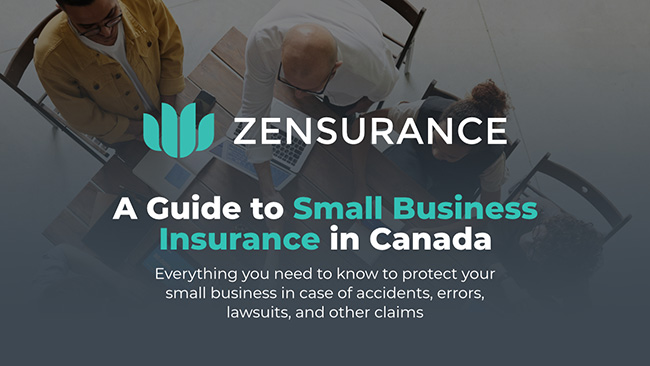According to the Centre for Addiction and Mental Health (CAMH), mental illness and substance use disorders are the leading causes of disability in Canada, and the economic cost of mental illness is estimated at over $50 billion per year.
These facts highlight the value and importance of mental health and wellness practitioners striving to help people overcome challenges and live healthier lives. However, these practitioners face many significant pitfalls that could upend their careers and reputations.
A disciplinary action or a malpractice lawsuit against any mental health practitioner can have severe consequences on their careers and financial well-being. Without adequate coverage, practitioners could face significant financial burdens, reputational damage, and even the risk of losing their practice.

Related Posts
Categories
What Does Malpractice Insurance for Mental Wellness Professionals Include?
Malpractice insurance is a specialized professional liability policy designed for healthcare and wellness professionals.
It covers a broad range of claims or lawsuits against healthcare practitioners related to their services, such as allegations of misconduct or negligence. For instance, if a patient alleges that a therapist’s advice led to the worsening of their condition, or if a client claims that a counsellor’s negligence resulted in emotional distress; malpractice insurance can provide financial protection and legal support.
5 Ways for Mental Health Professionals to Avoid Malpractice Claims
Getting the malpractice insurance you need is critical, however, preventing claims situations will always be your best bet. This can be done by ensuring you steer clear of patient or client complaints, allegations of professional negligence, or claims that can lead to expensive lawsuits or disciplinary actions against you. Here are five ways to prevent those situations:
1. Establish Clear Guidelines with Patients
It’s vital to set clear and distinct boundaries as to what services you will and will not provide for each patient or client you meet. One way to do this is to have a comprehensive informed consent document that they should sign after discussing it with them.
A detailed consent form should outline the scope of therapy, confidentiality, and limits of privacy a client can expect for mandatory reporting purposes. It should also explain the fees and cancellation terms of your services and highlight the goals and limitations of therapy to help manage their expectations.
Furthermore, avoid engaging in personal, financial, or social relationships with clients or patients, and be extremely cautious when using technology with clients, such as replying to emails and texts. You need to be 100% sure the individual you’re exchanging emails and texts with is actually your patient.
2. Maintain Accurate Documentation
Always maintain detailed, accurate records of every session you provide, including the diagnoses, treatment plans, and changes in care for each client. Also, strictly follow confidentiality laws in your province, such as the Personal Health Information Protection Act (PHIPA) for Ontario, governing the collection, use, and disclosure of your patient’s personal health information.
3. Update Training and Credentials
Ensuring your license is up-to-date for the jurisdictions where you apply your services is critical. Additionally, pursuing accredited training to upgrade your skills and knowledge and apprise yourself of new practices, treatments, standards, and legal requirements is equally vital.
4. Know What Insurance Covers You
Understanding what type of insurance any mental health or wellness professional requires to adequately protect your career and finances might not be thoroughly discussed during training and in classrooms. You need to better understand what a customized malpractice insurance policy includes and not solely rely on minimum recommendations.
Psychologists, counsellors, occupational therapists and social workers employed by a clinic should find out exactly what the employer’s coverage includes and the coverage limits to see if any gaps in coverage could expose them.
Independent mental health practitioners, however, can consult their professional association or work directly with a licensed Zensurance broker to ensure they’re adequately protected.
5. Be Aware of Regulatory Changes
Stay on top of ethical guidelines and regulatory changes in your industry or province by regularly reviewing updates to laws and practices. The professional association in your province can keep you informed.
How Mental Wellness Practitioners Can Get Low-Cost Malpractice Insurance
Zensurance is Canada’s leading provider of malpractice insurance and small business liability insurance. We help thousands of Canadian mental health and medical practitioners get the comprehensive, customized insurance they need at affordable prices. Let us help you get the protection you need quickly and easily.
Fill out our online application for a free insurance quote in less than five minutes.
With over 50 insurers in our partner network, Zensurance can get the coverage you need to shield your career and finances, providing you with the peace of mind to focus on what you do best – helping your clients.
Recent Posts
What Is Installation Floater Insurance in Canada?
What happens if materials are damaged or stolen before you install them? If you transport or store materials on a job site before installation, installation floater insurance can protect your job profit from theft, damage, or loss anywhere in Canada.
Why Clients Ask for a Certificate of Insurance (COI) in Canada – and How to Get One Fast
Learn what a certificate of insurance (COI) is, why Canadian clients require it, and how small business owners, contractors, and independent professionals in Canada can get a COI fast – often within 24 hours.
What Type of Insurance Does a House Cleaner in Canada Need? (Coverage Explained)
House cleaners provide an essential service to Canadian households, but even small accidents can lead to costly claims. Here’s the insurance coverage professional house cleaners in Canada need to protect their businesses and income.
Sign Up for ZenMail
"*" indicates required fields










